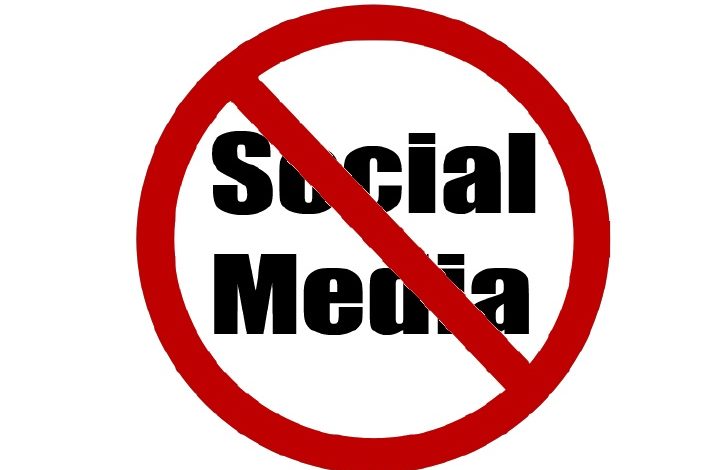Calls To Restrict Social Media Will Shrink Digital Rights – SERAP, AI

There has been a push by governors and monarchs in some parts of Nigeria for the Federal Government to regulate the social media following the #ENDSARS protest in some states across the country demanding for an end to police brutality and a police reforms.
On Sunday, November 8, monarchs and governors in the Southwest region called for social media regulation. The Northern Governors Forum and leaders from the region had earlier backed moved by the Nigerian Government to regulate social media on the ground that it helps the spread of fake news in the country.
At the end of their meeting in Lagos, Nigeria’s commercial capital and the epicentre of #EndSARS protest, the Southwest governors, traditional rulers and a Presidential delegation lamented the negative effect of fake news peddled on social media during the recent #EndSARS protests.
“We recognise the damaging and negative impact of fake/false news and worry about its destructive and dangerous potency of fake news,” they said in a communique issued at the end of their meeting.
They asked the federal government to “use the instrumentality of existing laws and those regulations bench-marked from other countries to provide safeguards against the spread of fake news. 2015 Cyber Act will also be fully used”.
“Federal Government should ensure that technology is used effectively for the advancement of the Nigerian Security and not its destruction by working with the technology cum social media platforms like Facebook, Twitter, Instagram etc. The regime of checks and gatekeeping should be fully employed.”
In October, Lai Mohammed, Nigeria’s Minister of Information and Culture was quoted as promoting social media regulation, during a meeting with members of the House Committee on Information, National Orientation, Ethics and Values.
“When we went to China, we could not get Google, .Facebook, and Instagram, you could not even use your email in China because they made sure it is censored and well regulated,” Mohammed was reported as said.
“The recent #EndSARS war was fought on social media. They mobilised using social media. The war today revolves around two things. Smartphone and data and these young men don’t even watch television or listen to radio or read newspapers. You will be shocked that when you start arguing with your children, they will be quoting the social media. So, we need a social media policy in Nigeria and we need to empower the various agencies and we need technology to be able to regulate the social media.”
Nigerians Kick Against Social Media Regulation
Nigerians have not taken kindly to the calls for the regulation of social media.
Socio-Economic Rights And Accountability Project (SERAP), a non-profit legal and advocacy organisation threatens to sue the Nigerian Government if the social media space is regulated.
“Nigerians have a constitutional right to freedom of expression including online. We’ll see in court if this right is restricted,” SERAP wrote on Twitter in response to the statement by the Southwest leaders regarding control of social media.
Amnesty International also expressed concerns social media regulations will lead to digital authoritarianism, censorship and shrinking of digital rights.
Amnesty said Social Media regulation will give the government the arbitrary powers to shut down the internet and limit access to social media.
“Regulating social media would pose a threat to critical opinion, satire, public dialogue and political commentary. Social media regulation could easily empower those in power to punish critics of government policies and actions, and anyone who asks difficult questions could find themselves liable to incredibly harsh punishment,” the Human rights organisation in a Tweet on Monday.
In 2014 and 2015, the government pushed forward a National Cybersecurity Strategy and the Cybercrimes Act to deal with cybercrimes imposing penalties ranging from a fine to imprisonment.
In 2019, the parliament proposed a National commission for the prohibition of Hate speech and the Protection from Internet Falsehood and Manipulation Bills to regulate social media space.
Confidence Macharry, the Security Analyst at SBM Intelligence, explains that fake news is a legitimate concern to any government, but equally concerning is the government’s policy of curtailing such.
“What Twitter did during the US elections and its campaign is a good example of addressing fake news and misinformation,” Macharry said.
Macharry added that technology companies and media houses bear responsibilities to curb and verify information posted on their sites.
Allowing the government to regulate information is an invitation to authoritarianism which this government has been clearly craving for, she added.
Support Our Journalism
There are millions of ordinary people affected by conflict in Africa whose stories are missing in the mainstream media. HumAngle is determined to tell those challenging and under-reported stories, hoping that the people impacted by these conflicts will find the safety and security they deserve.
To ensure that we continue to provide public service coverage, we have a small favour to ask you. We want you to be part of our journalistic endeavour by contributing a token to us.
Your donation will further promote a robust, free, and independent media.
Donate HereStay Closer To The Stories That Matter




